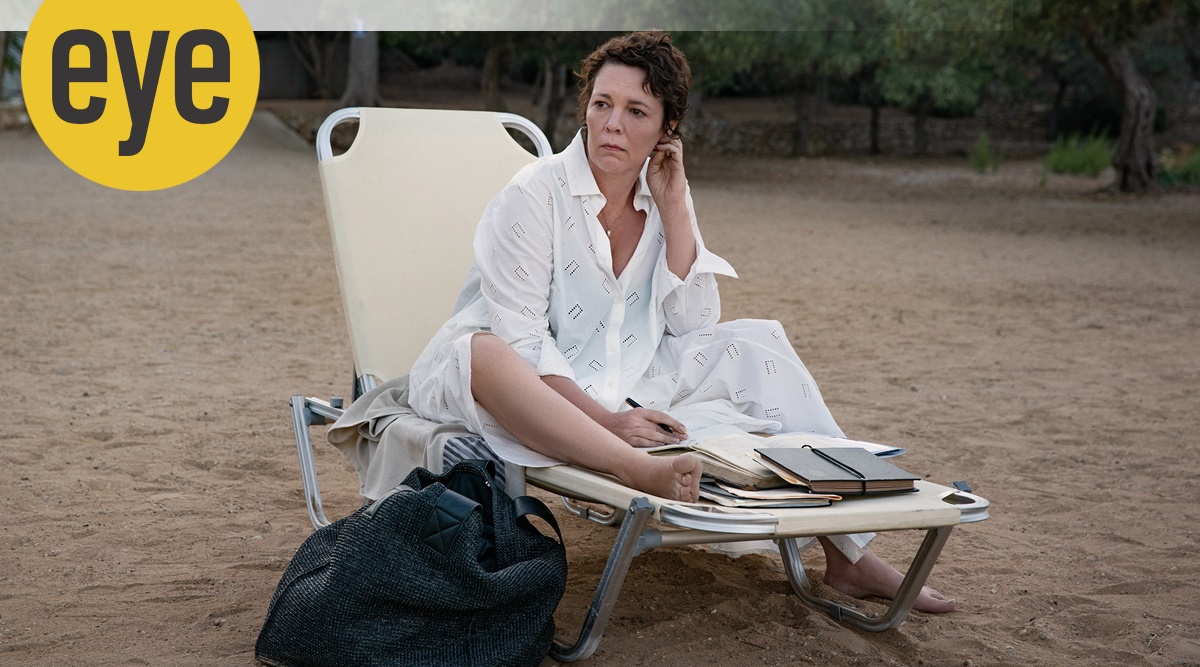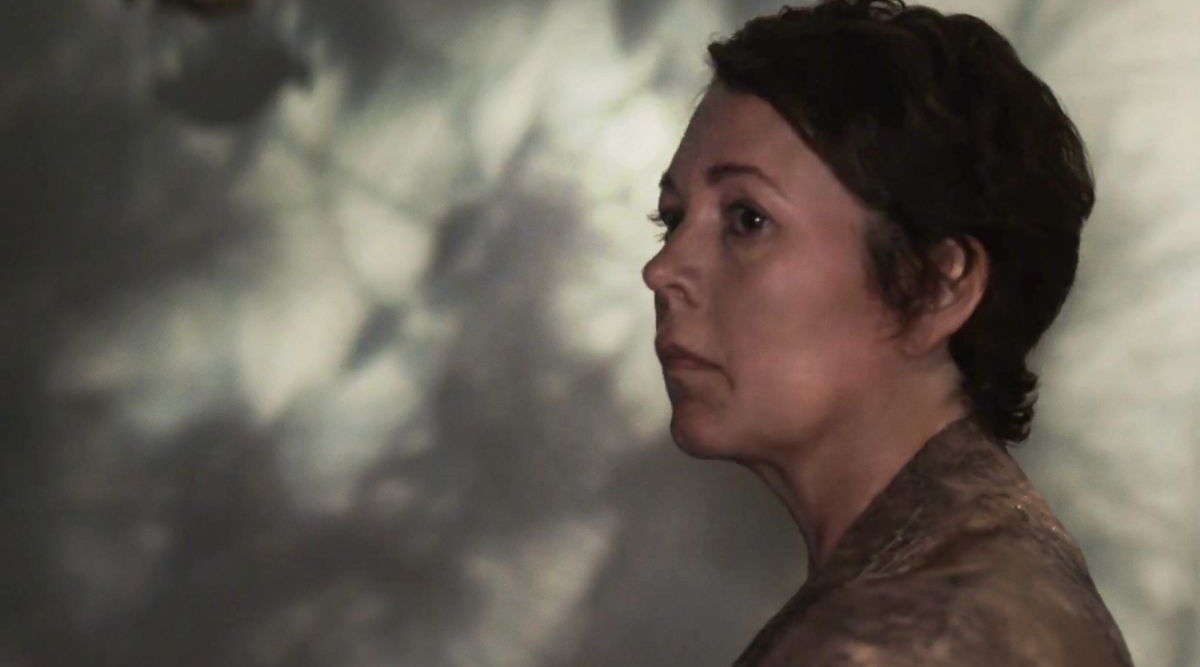 Olivia Colman plays the older self of the protagonist Leda Caruso in The Lost Daughter, based on Elena Ferrante's novella of the same name.
Olivia Colman plays the older self of the protagonist Leda Caruso in The Lost Daughter, based on Elena Ferrante's novella of the same name. Looks like I’ve been searching for the magnificently flawed, grasping, utterly human Leda Caruso all my life. The most striking moment in The Lost Daughter (streaming on Netflix) is when Leda’s younger self (Jessie Buckley) sets her face towards the door and walks out. Leaving behind two lovely, young, clingy daughters. She has done everything asked of her, including paring an apple just the way she can, in one long, uninterrupted swirl, like a snake, their very own game. And then, she’s done.
She has thrown a switch. In the future, she may change her mind. The lover who has enamoured her, may lose his charm. But in this moment, she is going, she is gone, emerging on the other side as her older self (Olivia Colman).
Between the face of the woman intent upon peeling that fruit, and that of the woman who has turned away from a life with her daughters and their father, wrapped in the exhausting, endless demands of domesticity, there is painful, jaw-clenching resolve. To rediscover her own self, which comes alive when she is reading and writing and thinking. Leda’s face is a map of longing, instantly recognisable and relatable.
 Olivia Colman in a still from the film
Olivia Colman in a still from the film She no longer wants to be just the mother expected to be on tap all the time. Providing succour. Meals. Medicines. Hugs. And most precious, her time, during which she wants to do things other than mothering. It’s not just her two girls she is expected to look after. Her spouse is as much of a clinger. He begs her not to go. He doesn’t say, I’m sorry, I’ll do more, I’ll be more. All she gets is more snivelling. At that point, there doesn’t seem to be any difference between her daughters, and that man on his knees, with whom she has begat those girls.
We rarely see these leaving mothers in our world. We don’t see too many of them on screen either. Leda (Colman and Buckley) and Nina (Dakota Johnson) in Maggie Gyllenhaal’s brilliant directorial debut are singular representations of what motherhood can and does come to mean to millions of silent women around the globe.
The ideal mom, the apple-pie baker, and the gaajar-halwa maker, is meant to dissolve herself, and become her functions proudly. She gets put on a pedestal and worshipped. If she does step off, even for a bit, she is guilted. Not just by her immediate family but by societal expectations. That guilt becomes a constant. What if something happens to the children? Why is she out of the house? Why is she even thinking of herself, when she is a mother?
By articulating those inchoate desires, and the constant oscillation between the many selves of a woman, The Lost Daughter, based on a novella by best-selling Italian author Elena Ferrante, is a game changer.
Leda returns. She doesn’t say why. But one thing I do know, and it is this. Only when you leave, can you come back. Only by losing yourself, can you find yourself.
- The Indian Express website has been rated GREEN for its credibility and trustworthiness by Newsguard, a global service that rates news sources for their journalistic standards.

